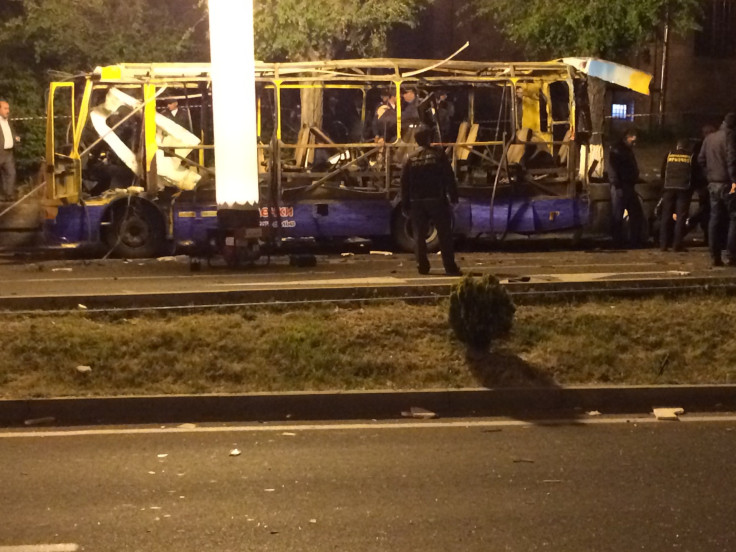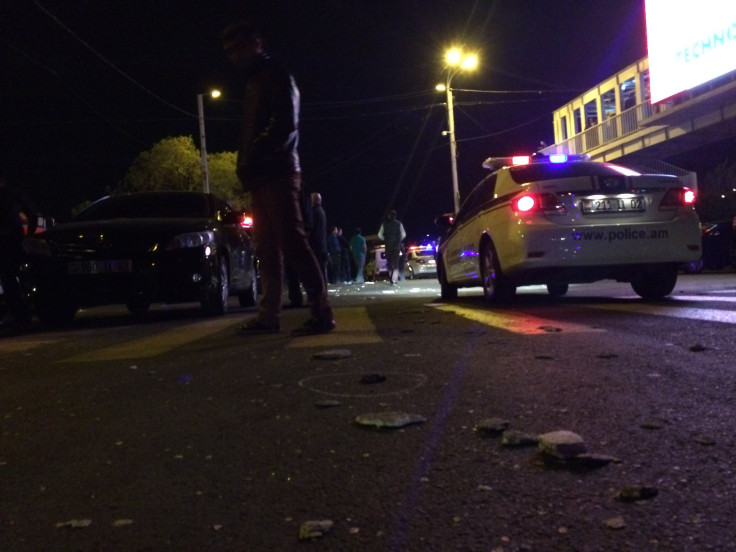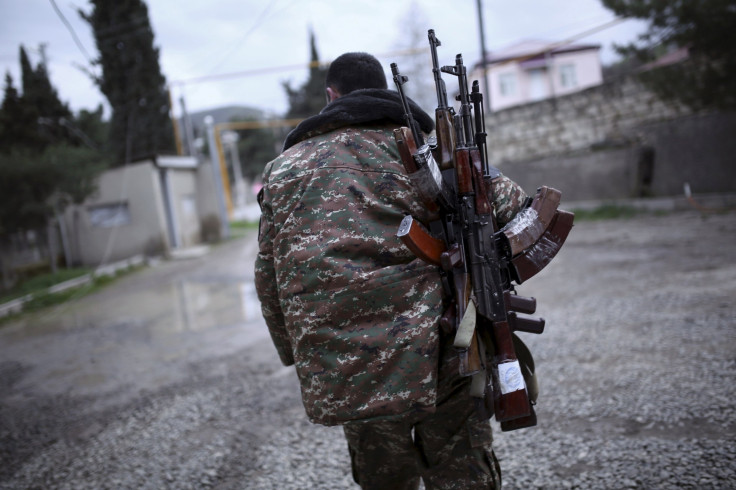Rare Deadly Blast Hits Armenian Capital; Terrorist Attack Feared

YEREVAN, Armenia — A large explosion tore through a bus in the center of the Armenian capital Sunday evening, killing two people and injuring eight. Police reportedly said afterward that initial investigations indicated the blast was likely to have been a terrorist attack.
Body parts were still lying dozens of yards from the bus three hours after the explosion, which took place just before 10 p.m. local time. A large part of the roof of the bus was blown over a nearby block of apartments, falling to the ground about 75 yards from the gutted vehicle.
“It was a very large explosion and all the windows shook,” said Nelson Avartyan, a local resident who was asleep in his apartment overlooking the site of the explosion.
He immediately went outside to find out what happened. “I didn’t even want to look ... I saw one body and then they took the rest away,” he told International Business Times. Dozens of windows in nearby buildings were blown out.
Terrorism in Yerevan is extremely rare and confirmation of an attack would mark a serious escalation in the strategic South Caucasus. But shock waves rippled through the region earlier this month as Armenia became embroiled in deadly fighting with its neighbor Azerbaijan over the disputed enclave of Nagorno-Karabakh.

The explosion took place near the center of Yerevan, less than half a mile from the site of a memorial to the Armenian genocide and a conference hall complex where Hollywood A-lister George Clooney awarded a new humanitarian prize just 24 hours earlier.
A bomb was placed under one of the seats and the blast was caught on CCTV cameras, Armenian media reported the country’s chief of police as saying several hours after the incident.
All 10 people on the bus at the moment of the blast were reportedly either injured or killed. The driver of the vehicle survived the blast — suggesting it originated in the middle of the bus.
The incident comes at a highly sensitive time for landlocked Armenia, which has not experienced any major terrorist incidents since the 1990s.
Four days of clashes between Azerbaijani and Armenian troops in early April in Nagorno-Karabakh claimed over 100 fatalities — the greatest loss of life in the conflict since a 1994 ceasefire ended a bloody ethnic war that erupted in the dying days of the Soviet Union. The violence threatens to destabilize a sensitive region bordered by Turkey, Russia and Iran.

Armenian President Serzh Sargsyan warned in an interview with the Bloomberg news agency Sunday that full-scale war could break out “at any moment” in Nagorno-Karabakh.
Moscow took a leading role in the mediation of a ceasefire between Armenia and Azerbaijan, and Russian officials have heavily criticized Turkey for strong statements of support for Azerbaijan.
Armenia also marked Sunday the 101st anniversary of the mass killings of Armenians in the Ottoman Empire — an occasion that saw thousands of Armenians marching through the streets to call on more countries around the world to recognize the event as the a genocide. Turkey, the successor state to the Ottoman Empire, does not have diplomatic relations with Armenia and denies the killings can be called a genocide. Western countries, including the United States and the United Kingdom, do not use the term genocide in relation to the killings.
© Copyright IBTimes 2024. All rights reserved.






















